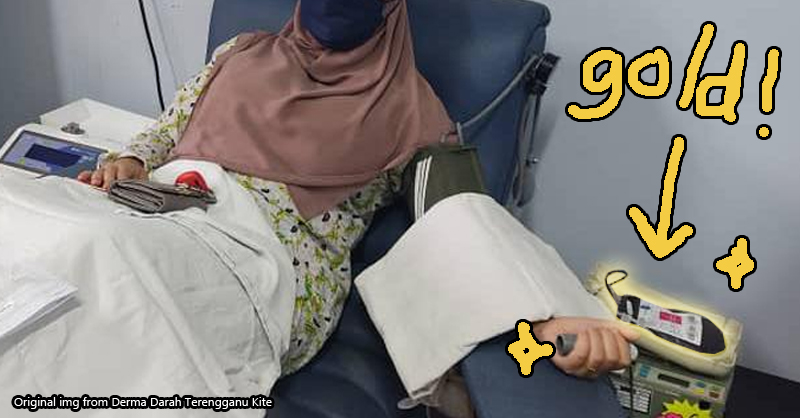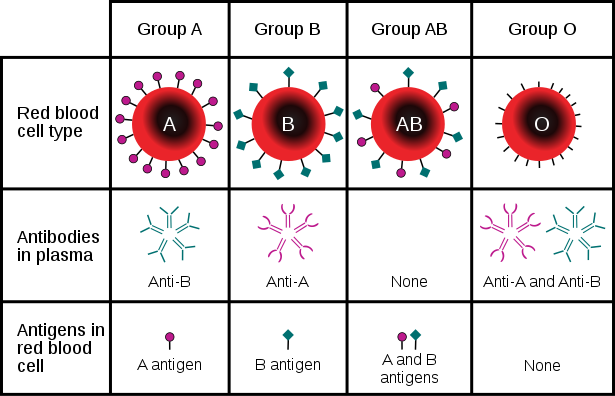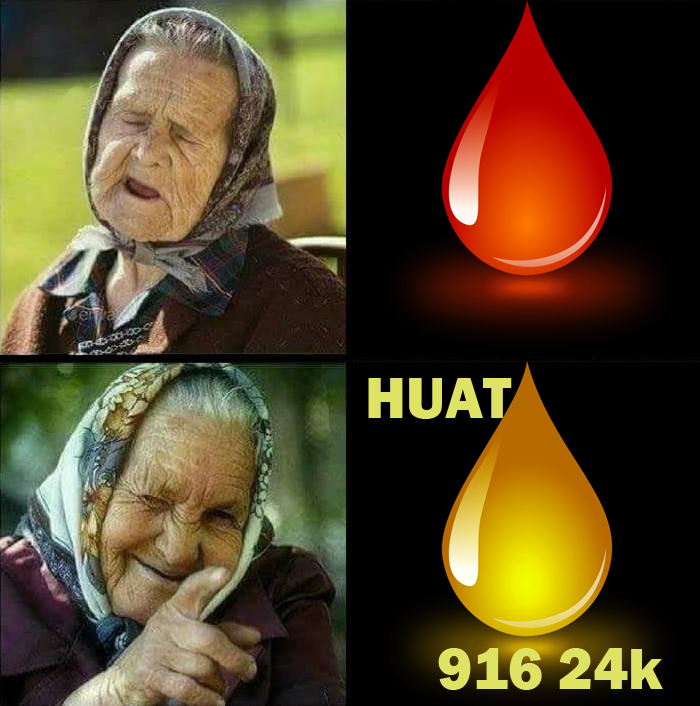A Terengganu woman was found with the rare “Golden Blood” type. But why is it ‘golden’?

- 108Shares
- Facebook83
- Twitter6
- LinkedIn8
- Email5
- WhatsApp6
Last week, the news was abuzz with a strange headline: a woman in Terengganu was reported to have the rarest blood type in the world. Known colloquially as ‘golden blood’, the woman seems to be the only one in Malaysia who has it, and among the 43 people worldwide with this unique blood type.
For now, her identity is kept secret by her own request…
“We cannot give information on the blood donor because she is not ready to be interviewed and has asked for her identity to be kept secret,” – Derma Darah Terengganu Kite, the Facebook page where the news first broke out, as quoted by Free Malaysia Today.
…but imagine having something so rare flowing through your veins, that no one else in Malaysia does. So what’s so special about this golden blood? Well, first we have to address some basic questions…
What is golden blood actually? Got actual gold flakes ar?
[P/S: If you already know how blood types work, feel free to skip the next 4 paragraphs or so.]
If you find someone with golden blood and stab them through the neck, the blood that will come gushing out will be disappointingly red. On the surface, blood is blood, so what’s the difference between this special golden blood and our own boring blood? In a word, antigens.

Antigens tell your body that your red blood cells (RBCs) are yours, so that your immune system’s antibodies, which are geared to attack antigens you don’t normally have, leave them alone. For example, the most famous antigens are A and B. If you have only A antigens on your RBCs, then your blood type is A, and your antibodies are developed to fight off any blood that shows up with B antigens, like blood types B and AB. This relationship applies to the other three blood types.
However, blood is a bit more complex than that. Besides A and B antigens, we also have hundreds of other different antigens on our RBCs. Some are classified in groups, like how A and B belong to the ABO system/group. There are 38 of these groups commonly used to describe blood, so if you ask for your full blood type, it’ll be longer than the initials behind a VIP’s name.

These groups aren’t usually mentioned, though. Most people belong in the same groups, so describing them would be redundant. If you don’t belong in the same groups, however, then you’ll technically have rare blood. Ok, so which antigen/group makes golden blood then?
The biggest group of antigens among the 38 would be the Rhesus system (shortened to Rh), and it includes a whopping 49 antigens in it. One of them is responsible for the + or – sign in your blood type: Rh(D). If you have this antigen, your blood type is positive, if you don’t, then you’re negative. Golden blood has something to do with this Rh group.
While it’s normal for people to not have a few antigens in this group, people with golden blood has none of the 49 antigens. This is why the formal name for golden blood is Rh null – it’s missing a whole group of antigens, and a big one at that. And although golden blood sounds like a wonderful thing to have…
It’s also sometimes referred to as Rh null disease
The most obvious downside to having something so rare is that if you lose it, it’ll be very hard to replace. Remember our talk about antigens from earlier? Since the body builds up defenses for antigens we don’t already have, if people with golden blood needs a blood transfusion, they can only get blood without all 49 of those antigens. In other words, only golden blood will do.

That means if they’re planning to have surgery sometime in the future, they’ll have to stock up on their own blood in advance, and if they happen to have an accident with no blood saved up, they’ll have to hope that there’s someone else with golden blood nearby willing to donate on short notice. Bearing in mind that less than 50 people have it worldwide and only 9 of them donate regularly, that’s a pretty long (and potentially expensive) shot.
Besides constantly being scared of accidents and surgeries, apparently missing a whole bunch of antigens isn’t good for you: an alternate name for not having any Rh antigens is Rh null disease. Rh antigens help maintain the biconcave disk shape of red blood cells, which is important for the cells to carry oxygen and squeeze through tight capillaries. Having none of these Rh antigens makes the red blood cells weak and misshapen, and quite fragile so they don’t last very long. As a result, people with golden blood may end up with mild anemia.
For women, there’s a chance that it can interfere with having children. This is true for not just people with Rh null, but negative blood in general. If the woman marries a man with positive blood, there’s a chance that the baby’s blood type will end up positive. In some cases, the infant and mother’s blood may come into contact, and the antibodies in the mother’s body may attack that infant’s red blood cells, leading to a condition called hemolytic disease of the newborn – the baby’s RBCs breaks down at a rapid pace, putting it in danger.
Still, it’s not all bad…
Golden blood could still be worth its weight (or more) in gold
Having golden blood sucks if you need a blood transfusion, but it makes it easier for people with less (but still) rare blood. Due to the lack of Rh antigens, this kind of blood can safely be used on any other person with missing Rh antigens, no matter how weird their Rh combinations are. Since golden blood is still pretty rare though, it probably won’t be used until absolutely necessary. But it’s nice to know that they have options.

There also seems to be a great demand for golden blood in research, as missing a bunch of interfering antigens makes Rh null blood a great ‘knockout’ system. The demand is so great that it’s said that even if Rh null blood samples are stored anonymously, some researchers will track down the donor to ask for their blood directly. So the Terengganu woman wanting to be anonymous is probably a good move on her part.
Still, if you look at that kind of demand, we suppose it wouldn’t be far-fetched to say that people with golden blood could probably name their price and get their blood’s worth in gold, or more. For now, the nameless Terengganu woman’s blood had been sent to the National Blood Center, where it will be frozen in nitrogen at -80°C for 10 years, in case there is a need for it in the near future.
- 108Shares
- Facebook83
- Twitter6
- LinkedIn8
- Email5
- WhatsApp6
